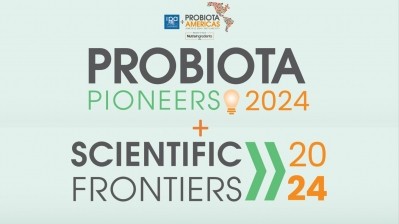Nestlé Research: Supporting infant microbiome development without compromising gut ecology
This content item was originally published on www.nutraingredients.com, a William Reed online publication.
“The first thing that we think about when talking about early life nutrition is the gold standard—which is breast milk,” Dr. Berger told the audience at NutraIngredients' Probiota event in Milan this month.
Human milk oligosaccharides (HMOs), a major component of human milk, are digested by our microbiota and are associated with multiple health benefits including shaping a healthy infant gut microbiome, supporting brain development and maintaining a well-balanced immune system.
But an infant’s microbiota can be altered by factors such as c-section delivery or antibiotic use, Dr. Berger noted.
“At birth, an infant is born essentially sterile, and we have progressive engraftment from different strains from the external environment, the mother, etc," he explained. "This increases the complexity and diversity of bacterial strains. However, it's not just a question of diversity, it's also a question of what type of bacteria is present at which moment. For example, between one month and three months, we have normal dominance of Bifidobacterium.”
Strains of Bifidobacterium longum subsp. infantis (B. infantis) are amongst the first to colonize the infant's gut, partly due to their capacity to metabolize complex HMOs.
Referencing a recent Nestlé randomized controlled trial, Dr. Berger said that an infant formula with a specific blend of five HMOs (2′-fucosyllactose, 2′,3-di-fucosyllactose, lacto-N-tetraose, 3′-sialyllactose, and 6′-sialyllactose) improved gut microbiota development and gut maturation markers.
The specific blend was shown to support the development of the intestinal immune system and gut barrier function and shift the gut microbiome closer to that of breastfed infants with higher bifidobacteria, particularly B. infantis.
“In this specific case, we showed that c-section delivery had an effect on the evolution of the microbiota, but with the intervention with five HMOs, we could restore the normal evolution of the microbiota to a normal trajectory,” Dr. Berger said.
Ecology of strains
The ecology of strains has rarely been addressed in probiotic interventions, until now, according to Dr. Berger, however to fully understand how the gut microbiome operates, its ecological dynamics need to be quantified at strain level.
In other research conducted by Nestlé, supplementation with specific probiotic strain B. infantis LMG11588, which is associated with normal infant growth, did not interfere with the natural dispersal of autochthonous B. infantis strains. In fact, several infants’ guts were shown to be colonized by strains coming from the environment, not the supplement.
“In this specific setup, B. infantis was outcompeted by autochthonous strains, which is of great importance in showing the ecological balance in the gut microbiota,” Dr. Berger told NutraIngredients after his presentation.
“We don't want to change the ecology of the gut, we just want to compensate for cases where there is dysbiosis, where we do not have B. infantis or Bifidobacterium in the gut of infants,” he added.
“Supplementation should not compromise the presence of naturally occurring bacteria, the idea is to give a high dose of B. infantis to the infant, but if they can achieve adequate quantities from external sources then that should remain unaffected, maintaining natural diversity.”














